Camera Lucida (Prisms)
 Thumb.png)
In 1807, Sir William Hyde Wollaston patented the Camera Lucida—and brought life-drawing to a whole new level. Wollaston’s device was simple: a prism on an adjustable stand. When an artist looks down through the prism, they see the world in front of them, plus their hand on the page, combined in perfect superimposition.
In short, a camera lucida allows you to trace what you see. And it does so in full daylight; there’s no need for a dark shroud or enclosure, as with a camera obscura. And that is the magic of the camera lucida: it’s portable, easy to use, and—with a little practice—you just copy the world onto your page with a confident hand.
By the mid-1800s, camera lucidas were everywhere. Indeed, the device is so effective in assisting accurate life-drawing that, according to the controversial Hockney-Falco Thesis, it’s now believed that many of the most admired drawings of the 19th Century, such as the Neoclassical portraits of Jean-Auguste-Dominique Ingres, could only have been made with a Camera Lucida.
The Camera Lucida sits at a pivotal moment in imaging history. Famed English astronomer Sir John Herschel was an avid user of the Camera Lucida, and often drew with friends on holiday. Close friend William Henry Fox Talbot, not as talented a draughtsman, was disappointed in his experience. He remarked in 1833: “when the eye was removed from the prism—in which all looked beautiful—I found that the faithless pencil had only left traces on the paper melancholy to behold.”
Talbot set out to do something about this unfaithful method of rendering. He spent the next several years trying to chemically fix images to paper, the process we now call photography. He succeeded in 1835, making direct image prints of objects (what we would today call photograms) and lensed images of his surroundings at Lacock Abbey. In a nod to his use of the camera lucida and his frustration that spawned photography, he called his first photographic publication The Pencil of Nature.
Click here to browse by this category.
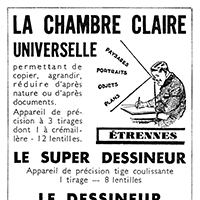
Chambre Claire Universelle (Camera Lucida)
Pierre Berville
1948
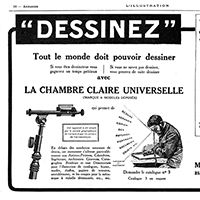
Chambre Claire Universelle (Camera Lucida)
Pierre Berville
1925
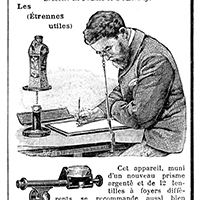
Chambre Claire (Camera Lucida)
Pierre Berville
1907
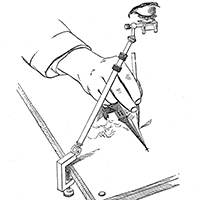
Camera Lucida
W. F. Stanley
1888
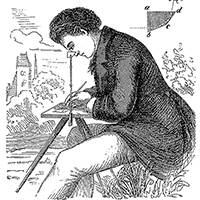
Camera Lucida
Julius Zollner
1877
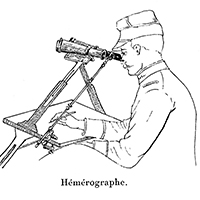
Hèmèrographe (Telescope Camera Lucida)
Ernest Hareux
Circa 1870
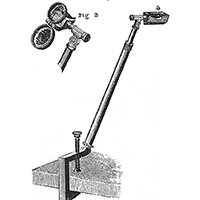
Camera Lucida
Benjamin Pike, Jr.
1856
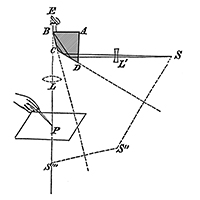
Camera Lucida
WHC Bartlett
1852
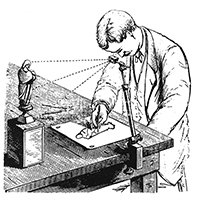
Camera Lucida
Unknown
Circa 1850
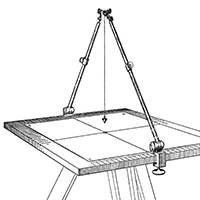
Surveying Camera Lucida
Aime Laussedat
1849
Click here to view more machines in this category.